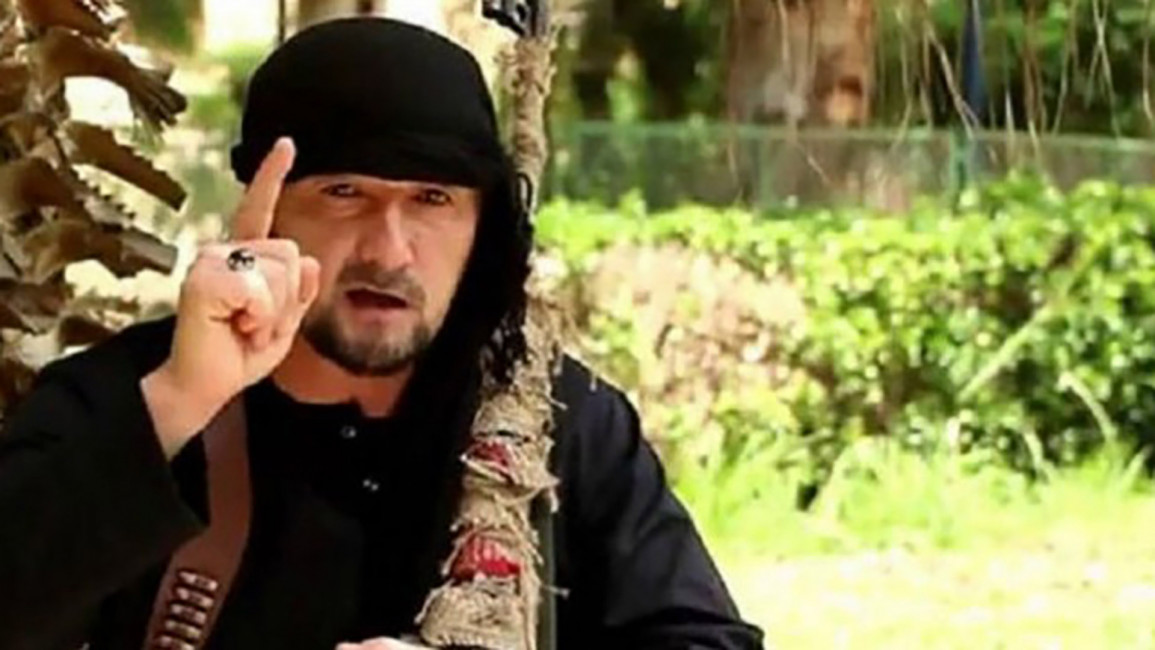
Hunting down IS leaders: Making it personal
On August 30, it was reported that infamous Islamic State group spokesman Abu Muhammad al-Adnani was killed in an airstrike. His death was later confirmed by the group itself.
Adnani was known to be a vital part of the IS leadership, arguably second only to founder Abu Bakr al-Baghdadi. The news brought on a triumphant mood in diplomatic and national security circles in the US and Moscow alike, with both countries fighting to take credit for his death.
While Adnani's death will certainly be a setback to IS, any optimism that an imminent decline of the group will soon follow would be premature. Targeting prominent militant and political personalities has been shown to be an ineffective counter-terrorism tactic, often resulting in disastrous consequences for the population at large - even with the potential to prolong the conflict further.
Pursuing high-value targets
The targeting of political and militant leadership as a counter-terrorism tactic is not new. The Israeli government, for example, has a long record of targeting Palestinian military commanders and politicians; most notably in the aftermath of the killing of Israeli athletes during the 1972 Olympics, and more recently during the second intifada.
In a University of Kansas study, authors Mohammed Hafez and Joseph Hatfield use a time series analysis of 2000-2004 during the Al-Aqsa uprising to show Israel's targeting of Palestinian leaders did little to hinder attacks by groups such as Hamas.
"Targeted assassinations may be useful as a political tool to signal a state's determination to punish terrorists and placate an angry public, but there is little evidence that they actually impact the course of an insurgency," write Hafez and Hatfield. While the authors also emphasise that the rate of attacks after targeted assassinations do not necessarily increase, they do not serve as a deterrent to future violence either.
 |
Groups with a highly organised bureaucratic structure are more immune to attacks on its leadership, with 'vast supply of new recruits who can be trained to fill their spots' |  |
Since 9/11, the targeting of the al-Qaeda leadership, primarily Osama Bin Laden, became a cornerstone of US counter-terrorism policy. While Bin Laden's death in 2011 and that of other high value commanders over the years dealt a blow to the organisation, it did not undermine the group's ability to carry out their attacks as the "War on Terror" progressed.
Jenna Jordan of Georgia Tech states that, with the exception of 2006, when terror attacks carried out by al-Qaeda dropped significantly, the group's attacks steadily rose after 2001. Jordan adds that groups with a highly organised bureaucratic structure are more immune to attacks on its leadership, with "vast supply of new recruits who can be trained to fill their spots".
Professor Austin Long of Columbia University similarly asserts that targeting of insurgent and terrorist groups is "inversely proportional level of institutionalization of the target".
Hence, in an outfit like IS that control large swathes of territory across Syria and Iraq, with a seemingly never-ending supply of financial capital, and a recruiting capability that goes far beyond the Levant, it is unlikely that the death of high profile figure such as Adnani will signal the beginning of their decline.
Unintended casualties
The advent of drone strikes in modern warfare, designed specifically to take out high value targets, has been highly controversial - as thousands of civilians have been killed in so called "surgical" strikes; the policy receiving widespread condemnation from the general public and human rights organisations alike.
 |
Classified CIA documents show that approximately 90 percent of those killed in drone strikes were unintended targets |  |
In places such as Yemen, where the US government has carried out a debilitating drone campaign against al-Qaeda affiliate AQAP, many of the subsequent casualties have been overwhelmingly non-combatants. Classified CIA documents show that approximately 90 percent of those killed in drone strikes were unintended targets, many of whom have not been named.
Such attacks have been long argued to intensify anti-Americanism amongst the local public, while providing resonance to the anti-western propaganda of terror outfits like the AQAP.
"For al-Qaeda, the drone programme is a gift from the heavens," says Jillian Scwedler, professor of political science at Hunter College. Scwedler emphasises that, combined with the ineptness of the Yemeni state and its collusion with the US government, al-Qaeda has been able to exploit the grievances of the local population, providing them an alternative to seeking justice that their own government fails to offer.
This view is substantiated by local Yemeni activists such as Farea al-Muslimi, who in testimony before a US Senate committee stated "the killing of innocent civilians by US missiles in Yemen is helping to destabilise my country and create an environment from which AQAP benefits".
It is obvious therefore that with ever-increasing political disenfranchisement and perpetual warfare across the Muslim world, groups such as AQAP and IS - which possess an undeniable ability to successfully organise and build institutions - will remain relevant.
Knocking off their most alluring personalities may surely dent their immediate campaigns, but as far their long-term survivability is concerned, a more comprehensive strategy centred on the political and material circumstances in which such groups thrive will prove far more useful than hellfire missiles and "surgical" strikes.
Usaid Siddiqui is a Canadian freelance writer. He has written for PolicyMic, Aslan Media, Al Jazeera America and Mondoweiss on current affairs. Follow him on Twitter: @UsaidMuneeb16
Opinions expressed in this article remain those of the author and do not necessarily represent those of The New Arab, its editorial board or staff.




